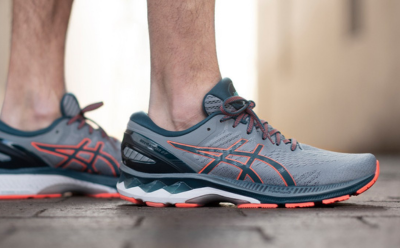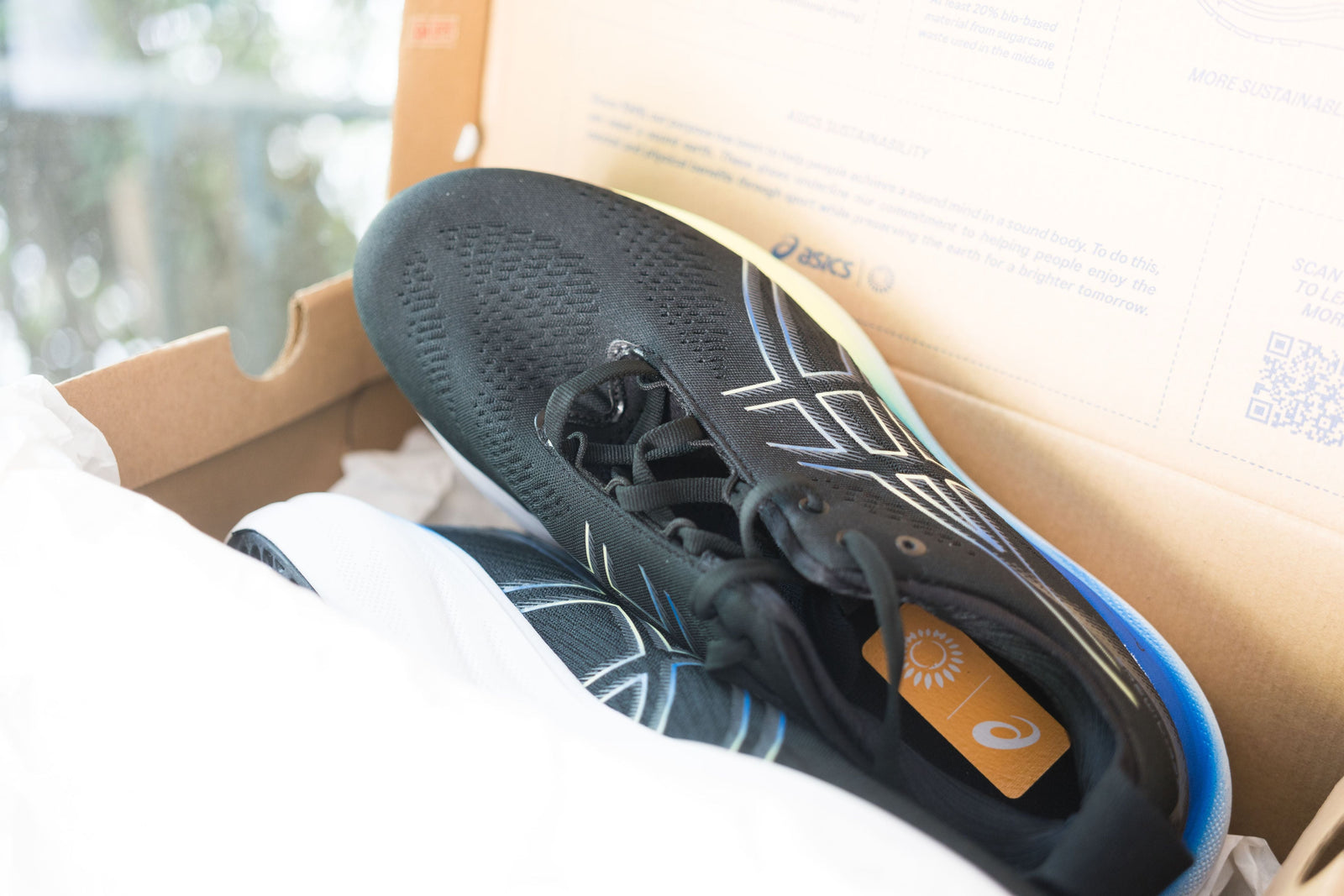A meticulous running routine should balance hard work, recuperation, and progress. Nothing beats the euphoria that pulsates through the body as a reward for grit and the immeasurable satisfaction that follows a great run. But all that exertion has put a lot of hidden strain on your body. And as much as your weekly running schedule may include some easy runs and rest days, are you as vigilant with your diet?
If not, you must reconsider, and you can use this article as theoptimal recovery nutrition for runners' guide to elevate and complete your rehabilitation efforts. We will be going through how the right food will aid your running objectives, taking running supplements, the best times to eat, and the importance of hydration. This tool should ultimately support your journey to improved athletic performance and longevity.
Running Objectives
As monotonous as the sport of running may appear, there is a reason behind each drill for every runner. Some are novices while others have worn out countless pairs of trainers. Some are recreational participants and others have the sport at the core of their identity. Nutrition hinges on the health goals set at the beginning of a running career. Where are you with your running? Are you looking to drop a few kilogrammes? Are you training to join the Endurance Runners Club? Or have you been unsatisfied with your performance? When your objectives have been established, the best recovery food for that target can be identified.
What Running Does to the Body
Experienced joggers know all too well the roller coaster that a runner’s journey takes. The days you soar over gravel roads and pavements are relatively pain-free and you can take on the world. But the other days are dominated by discomfort in many areas of your body that have you counting the distance you have left to cover by the second. Those are the thoughts you experience, but let’s explore the physiology behind them. To accommodate your increased activity level, you will feel yourself breathing heavier as your pulse accelerates to accommodate a speeding heartbeat.
According to WebMD, “When you run, all of your major muscle groups are engaged. Your legs work to move you forward. Your arms provide balance. Your core is engaged in keeping you strong and steady.” Interestingly, not only is there an immediate release of a hormonal concoction after your run, but in the long term, running lowers the risk of depression, improves bone density, builds muscle, and enhances endurance. However, running has downsides including aches from widespread microtrauma, and inflamed and fractured joints, ligaments, and tendons. These must be nursed to health through sleep, days off, and eating recovery food after running.
Read The Best Nutrition for Marathon Training for more helpful nutrition tips for marathon running.
What Nutrition Does to a Runner’s Body
A nutritious diet is linked to sporting performance and recovery. Balanced meals fuel the body through training and exercise. They optimise the healing process by using macronutrients in adaptation efficiently and support the body as it regulates weight. A diet including enough water ensures the body is well hydrated and can regulate elevated temperatures during running. Sustained periods of athletic malnutrition will adversely impact your hormones, depress your immune system, and cause burnout. The most important benefits of great nutrition are running resilience and durability.
The Best Recovery Nutrition for Runners
With so much advice doing the rounds over the internet, it is natural to be confused or misled concerning the right foods to eat for your runs. Carbohydrates have received a bad rap by high-protein diet enthusiasts, but they are a crucial part of recovery. Together with protein and fats, they encompass the essential trio of macronutrients that keep our bodies fully operational.
Remember: Creating the right recovery menu is a personal activity. Go ahead and experiment with varied ingredients until you find what’s right for you.
An Overview of Carbohydrates
Carbohydrates are converted into glycogen and stored in the liver and muscles to fuel the body. Rigorous endurance exercises like marathon running require sustainable quick-release energy for peak performance. A 60 to 90-minute jog will need an excess of 500g of carbs to both replenish glycogen stores and support recovery. Ensure to include a varied mix of simple carbs like pasta and complex carbs such as whole grain bread and fresh produce in your meal plan.
An Overview of Protein
Protein is seen by many as the pinnacle of the macronutrient triangle because of its scientifically proven reconstructive properties. It consists of 20 amino acids that create the building blocks of the muscles, bones, tendons, skin, hair, and other tissues. Eating protein in regular intervals throughout to maximise its synthesis effects is recommended. High-quality dietary products such as eggs, milk, and lean meats are perfect options.
An Overview of Fats
Fat has had its fair share of controversy because we most prefer food with bad fats. It is difficult for healthy food to compete with biscuits, pastries, and creamy sauce cravings. Good fats like those rich in Omega-3s, aid in the absorption of fat-soluble vitamins including A, D, E, and K. These compounds are crucial for recovery, immunity, and the prevention of inflammation and fatigue. Try oily fish, avocados, and nut butters as delicious sources of good fats but avoid eating them before your run so you don’t run into digestive issues (pun intended).
Running Objective - Fat Loss
The logic behind weight loss is simple: calories in should be less than calories out. And with the legwork being put into regular runs, you are halfway there. The other half will come from careful eating.
Recovery food for runners listed below is packed with the right macro and micronutrients for an athlete trying to remain active on a calorie deficit. They are also staples for healthy and impactful recovery and are the ideal energy source that can fit neatly into your daily calorie count. Not only are they good for tissue repair and maintaining an enviable figure, but they are tasty too:
Rice cakes - This fibre-rich wholegrain is a great slow-release fuel source.
High-fibre cereal or related items like wholegrain muesli bars - Ensure to read the labels of these products to check for high sugar content. These have valuable ingredients and are convenient fuel sources.
Non-fat Greek yoghurt - Greek yoghurt is an amazing protein source that can be topped with fruit, nuts, and honey
Cottage cheese - This food item is low in fat, versatile, and a great on-the-go option.
Legumes like chickpeas and beans - Great sources of protein for plant-based diets.
Fruit paired with nuts or nut-based products (e.g. almond butter) - A killer duo of complex carbs and fats for optimal recovery. Try to minimise the portion of nuts.
Root vegetables like beetroot and sweet potatoes - A powerful combination of fibre and minerals.
Eggs - These wonders have few rivals when it comes to being a weight-loss superfood. Whole eggs are the perfect mix of vitamins, minerals, healthy fats, and high-quality protein.
Running Objective - Long Distance Runs
Marathon runners need substantially more carbohydrates than an average person to restore depleted reserves and to be functional for everyday life. This is not permission to stock up on all your favourite sugary snacks but a call to mindful eating. This section should provide a guideline for being more deliberate about optimal meal planning.
Bananas - Potassium-rich, handy, and satiating bananas are great runner companions.
Overnight Oats - Fibre-packed oats can give you the measured release needed beyond the steep hills.
Blueberries - Frequent consumption of blueberries is proven to aid recovery because they increase the body’s ability to fight oxidative stress and support healing.
Pasta - This wheat-based food can sustain you to the end of that marathon run when paired with a healthy sauce and animal protein.
Spices - Turmeric and ginger contain compounds that can reduce exercise-induced muscle soreness that occurs between 24 and 48 hours after vigorous activity.
Bagels - Topped with eggs or cream cheese and salmon, bagels can make a satisfying and balanced meal.
Tart Cherry Juice - Natural, no sugar added; tart cherry juice consumed after an extended run can reduce inflammation and hasten recovery. This is based on research conducted in Scandinavia.
Smoothies - Because smoothies can contain high-protein ingredients like milk, yoghurt, and other nutrient-dense foods, these are a great, time-saving, and mouthwatering way to recover.
Note: Lean animal protein forms are the purest protein sources to include in your diet if you’re a meat eater.
A Word on Supplements
The demands of modern-day life make it difficult to find time to prepare optimal recovery nutrition for runners’ meals regularly. Supplements may seem an appropriate alternative, but nothing can substitute for a comprehensive diet. Healthy food comprises the following micronutrients necessary for every runner:
Minerals - Calcium, Iron, and Phosphorus
Vitamins - A, B, C, D, E, and K
Trace Elements - Iodine, Zinc, and Magnesium
Electrolytes - Sodium and Potassium.
Supplements may help meet your daily nutrient intake requirements, but ensuring that you do not skip meals, you replace the sodium you lost through sweat as you run, and your diet is as varied as possible will aid your recovery immensely.
A Note on Sodium
Runners tend to struggle with nausea, fatigue, dizziness, gastrointestinal distress, impaired concentration, and bloating due to low sodium intake and dehydration. Utilising energy drinks, tablets, electrolyte sachets, and salty food like biltong during runs is recommended to maintain sodium levels and shorten the road to post-run recovery. Also, start with a sodium regimen about a day before your run.
The Importance of Hydration
Water not only hydrates a body that is about 60% liquid - major organs like the brain, heart, muscles, and liver are mainly made up of water - but it also helps to manage both body temperature and blood during runs. Dehydration spurs fatigue and decreased brain function because of excessive body heat and destabilised blood plasma. Drinking too much water as you exercise can upset your stomach but don’t entertain the habit of skipping out on using hydration packs, especially during long-distance runs. Take calculated sips to avoid early fatigue, injury, and illness.
The Best Times to Eat
Experts suggest eating a nutritious meal within 30 to 60 minutes of completing your run. Nibbling on a healthy snack is okay if you are not ready for a heavy dish too soon after your run. Your torn muscles, diminished glycogen reserves, and lowered sodium levels need immediate attention to facilitate rapid recovery. Optimal recovery nutrition for runners is the path to better physiological and mental health. It also prepares you for the next gruelling and rewarding running challenge, keeping you at your best.
Optimal Recovery Nutrition for Runners Dos and Don’ts
Dos:
Do eat a balanced diet - Include carbs, protein, and fats in your recovery meals to ensure complete nutrition.
Do hydrate adequately - Drink water and electrolyte-rich fluids before, during, and after your runs.
Do consume protein throughout the day - Spread your protein intake over several hours to maximise muscle repair and growth.
Do experiment with your diet - Find what works best for your body by trying different foods and meal timings.
Do include anti-inflammatory foods - Incorporate foods like berries, turmeric, and ginger to reduce muscle soreness.
Don’ts:
Don’t skip meals - Consistent nutrition is key to maintaining energy levels and aiding recovery.
Don’t rely solely on supplements - Whole foods should be the foundation of your diet.
Don’t ignore hydration - Even mild dehydration can impact performance and recovery.
Don’t consume too much sugar - Choose natural sources of carbohydrates instead of sugar-laden snacks and drinks.
Don’t overeat before a run - Give your body time to digest food to avoid gastrointestinal issues.
Conclusion
Optimal recovery nutrition for runners is essential for enhancing performance, reducing injury risk, and ensuring long-term health. Runners can significantly improve their recovery process by focusing on a balanced diet that includes the right mix of carbohydrates, proteins, fats, and hydration. Remember to experiment with different foods and find what works best for you.
At The Athlete's Foot, we understand theimportance of thorough nutrition and quality gear for runners. Visit us for expert advice, top-notch running shoes, and accessories to support your running journey. Invest in your health and performance today with The Athlete's Foot and take the next step towards becoming the best runner you can be.








Leave a comment (all fields required)